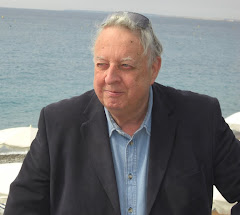I was surprised recently reading a survey of recordings of Beethoven's final piano sonata, Opus 111 by the commentator Norman Lebrecht, to read that of the 150 or so recordings of this work, Mr Lebrecht did not mention that by Igor Levit. Levit's recording was extravagantly praised when it arrived (not least by me). After nearly 70 years of reading critical opinions, I have gathered that they are 70% subjective, and only 30% objective. Opinions can be distorted by fashion, nationalism, racial preferences, political animosity, advertising and sponsorship. I recall the mother of a prominent violinist telling me once: “But we paid for international distribution!” And anyone in the current social media climate daring to voice any kind of opinion, is bound to attract a negative claque.
I have been re-listening to Igor Levit's recording of the five final Beethoven piano sonatas (omitting the Hammerklavier, that I have never taken to). Levit is a serious pianist who does not play to the gallery, and I always feel that the music coming from his finger tips, is the music as he feels it in his bones. He remains my kind of pianist. If there are indeed around 150 recordings of Opus 111, there cannot possibly be a “best”. But Levit's is up there in the top 10%, for me.
